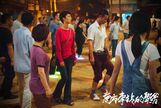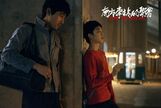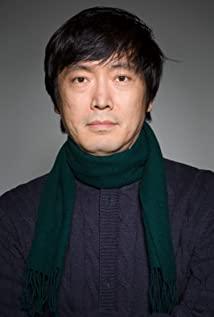"The Party at South Station" is the most satisfying movie I've seen this year, it's a real cinema.
The film has continued to create an atmosphere from the beginning. The dilapidated environment, marginal characters, vague dialects, and ambiguous moral stances are all standard features of "new film noir", and the texture of the film is very pleasing to the eye, with elegant scenery and rich colors. The color tone, natural lighting, old-fashioned positioning, etc., all have a nostalgic retro steadiness in them. Audiences accustomed to broken, fast editing rhythms may enjoy this "unfamiliar" immersive look even more.
Diao Yinan is a screenwriter, so the plot structure of this film is very fascinating. Not long after the opening, a motorcycle theft gang's turf meeting began, and then two groups of people fought, and there was a "car theft competition" to determine the winner and loser, and finally ended with a bloody plot. It can be described as menacing and fierce. This part shows the crime and disorder of the underground gangs very macroscopically. The people in it can only rely on belligerence and ruthlessness to issue orders. Immediately after the police arrest, the leader played by Liao Fan held a meeting to assign tasks, and the subordinates dressed as motorcycle drivers shuttled through the streets, which was in sharp contrast with the previous scene and was very dramatic.
In the second act, Gui Lunmei is entrusted to find Hu Ge's wife, who is the femme fatale in film noir. Her identity is a escort girl, and it can be seen from her twinkling eyes and her hired status that she is unreliable. The ending of noir movies is often devastating, and mainland movies don’t allow bad guys to go unpunished, so the audience doesn’t have to guess to know that these protagonists can’t get away, but how they struggled before they were destroyed, and how Turning into elbows, black people eating black, these are the bridges that attract the audience the most.
In fact, Diao Yinan did not depict the characters' characters as meticulously as "Fireworks in the Day" this time, but shifted the focus to the environment. I think the first protagonist of "The Party at Southern Station" is the city of Wuhan. The streets and alleys of Wuhan, the alleys of the city, the wilderness of lakes and swamps, the wind, rain and fog, are all presented in front of us in detail, and they are like a big hand all the time, playing with humble humans in the palm of his hand.
The scene of Gui Lunmei and Hu Ge boating on the lake in the night fog touched me deeply. Generally, noir films always add a calm scene before the final tragic ending, creating a false impression of "getting better", such as Bonnie and Clyde returning home to have dinner with family and friends in "The Male and Female Thief", The photographer covered the camera with silk stockings to make the picture look like heaven, and soon the two of them were shot into a hornet's nest by the police. Diao Yinan used a lot of dry ice in this scene, making the two protagonists also enter a no-man's land, and recklessly used unconventional intimacy in the ethereal to ease the tension of escape. At the end, we can know that Gui Lunmei has no love for Hu Ge at all, this is just a kind of guilt compensation.
The last part of the police collection is similar to the first scene, and they are all vigorous and neat. It is worth noting that more innocent people died and more damage was caused in the progress of this case. The ruthlessness of the gang and Liao Fan's command errors were obvious. So the end of the film doesn't feel lighter, but heavier.
At the end, after receiving the bonus, Gui Lunmei and Wan Qian disappeared in the downtown, arm in arm, which cast an ambiguous color on the whole story and added an alternative interpretation.
In fact, Hu Ge's performance is very good. Male protagonists in film noir are not easy to stand out. They always suffer silently, and even if they struggle, they cannot escape the whirlpool of fate. Hu Ge performed that sense of despair, numbness, and a hint of guilt for the family. The scene where he was eating noodles seemed simple, but it was actually very hard work. His hunger is both a physiological response and a thirst for life. When he picked up Gui Lunmei's bowl of noodles, he found that he was in a desperate situation, so he had no appetite, and he spit out the noodles he ate, just pretending. This kind of "no performance" type of performance is the performance of "Da Yin Xi Sheng".
"The Gathering at South Station" does almost everything I could get out of a movie, and without those few lines of subtitles, I could give it full marks.
View more about The Wild Goose Lake reviews











